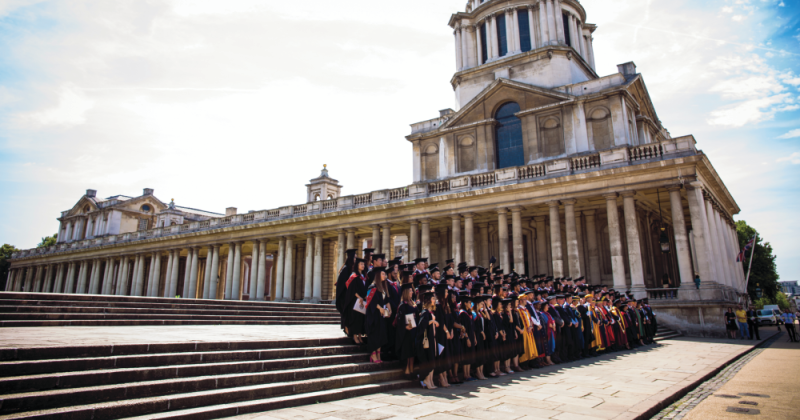Whenever asked about Greenwich, I always say I got very lucky with my lecturers: inspiring, approachable, and very patient with my endless queries. They were passionate about their subjects, keen to play maths-related strategy games during the informal Maths Arcade meetings we had on Mondays, and overall willing to discuss anything that came to mind.
Memories of Greenwich
Greenwich was my first experience as an international student. It came with a cultural shock, language differences, and attitudes towards what it means to have a career that were quite different from my home country.
The university helped me to secure a mentor from industry, then pushed me to apply for industrial placements, making it clear that while it was optional, it would be invaluable for my future career. As such I was mentored at IBM in my first year, was accepted for an industrial placement with them in my second and worked and mentored other students at IBM in my third. This journey enhanced my employability, influenced my focus on artificial intelligence in my final year BSc project and provided a glimpse into the working world, and what it means to work for a large company.
My lecturers, inspiring and approachable characters, made me realise that maths is something that I could explore, pursue, and use. This informed my interest in data science, programming, and cybersecurity – something I picked up during my Greenwich years, and still use today.
Life after Greenwich
Since graduation from Greenwich, I obtained a PhD and now work as a research associate at the University of Manchester. With maths skills and a year-in-industry in my portfolio, I was able to pursue a doctorate in human-robot interaction without doing a Masters degree, and completed it in 3 years.
Looking back, I think that it is important to show you can produce something that a broad audience can appreciate. Do your own projects to an excellent industrial standard, even if they are scaled down to your current resources and time. Put your best work in front of those who can appreciate it, be it in person, through social media, by volunteering, or anything else. You’ll quickly figure out which of your skills people really need, how to present your work outside of Uni, and what you need to improve going forward.



